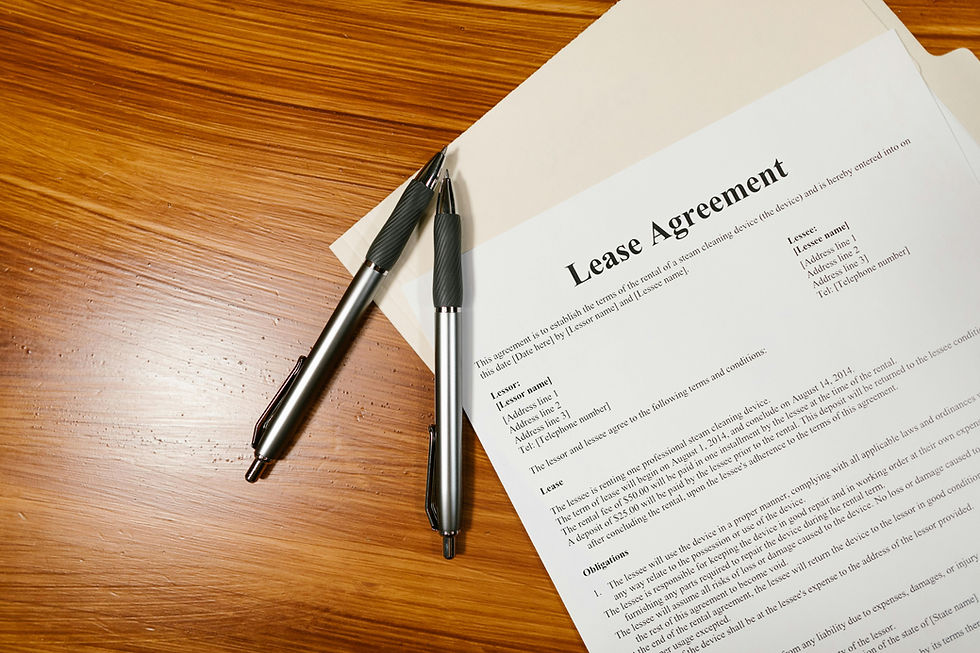Five Things Tenants Should Understand About How a Landlord Operates Their Building
- eweinblatt3
- Jun 19, 2025
- 3 min read

Introduction
When leasing commercial space, tenants often focus on the basics—rent, square footage, lease term—but overlook how landlords actually operate the building. However, understanding a landlord’s operations is key to creating a smooth, long-term tenant experience.
Commercial real estate professionals like Ezra Weinblatt, who advise clients across leasing, asset management, and property operations, emphasize the importance of tenant-landlord alignment. Knowing what drives a landlord’s decisions helps you avoid friction and build a stronger, more transparent relationship.
Below are five important things every tenant should know about how landlords manage their buildings.
1. Operating Budgets Are Carefully Structured
Every commercial building operates with a well-planned budget. This includes expenses like:
Maintenance and repairs
Utilities
Property taxes and insurance
Common area upkeep
Building improvements
In most lease types—especially triple-net (NNN) leases—tenants contribute to these costs through CAM (Common Area Maintenance) charges.
Ezra Weinblatt frequently advises both tenants and landlords to prioritize budget transparency. A clear breakdown of shared expenses helps tenants better manage their financial planning and reduces billing disputes.
Tenant Tip: Request a copy of the annual operating budget and CAM reconciliation to ensure alignment and accountability.
2. Landlords Focus on Maximizing Asset Value
From the landlord’s perspective, a commercial building is a long-term investment. Every decision—from selecting tenants to planning upgrades—is aimed at increasing the asset’s value.
Investing in capital improvements boosts long-term returns
Enhancing curb appeal attracts high-quality tenants
Maintaining occupancy reduces financial risk
Experienced professionals like Ezra Weinblatt understand that asset value is about more than rental income—it's about creating spaces that tenants value and want to stay in.
Tenant Tip: If you're planning long-term occupancy, share your vision early—landlords may be open to property upgrades or lease terms that benefit both sides.
3. Maintenance and Service Requests Follow a Protocol
Building maintenance isn't done on the fly—it follows a structured plan. Landlords often rely on:
Preventative maintenance schedules
Professional vendor contracts
Tenant service-level agreements (SLAs)
Response times may depend on urgency, budget constraints, and vendor availability. Professionals like Ezra Weinblatt encourage tenants to use maintenance portals or formal systems so that requests are logged, tracked, and resolved efficiently.
Tenant Tip: Understand your building’s maintenance process. Knowing where and how to report issues ensures faster resolutions and minimizes downtime.
4. Lease Agreements Define Responsibilities
Each lease lays out who handles what. The type of lease (e.g., gross, modified gross, or NNN) determines if the landlord or tenant is responsible for:
HVAC and system upkeep
Janitorial services
Interior repairs
Taxes and insurance
Ezra Weinblatt, who has worked with both startups and institutional landlords, notes that tenants often assume certain services are included—when they’re not. Misunderstanding these terms can lead to friction.
Tenant Tip: Always clarify maintenance obligations, especially for HVAC, plumbing, and interior repairs, before signing your lease.
5. Good Relationships Matter to Landlords Too
Landlords aren’t just collecting rent—they’re managing relationships. A satisfied tenant means lower turnover, consistent cash flow, and fewer management headaches.
Many landlords welcome feedback and schedule regular check-ins
Lease flexibility often improves with open communication
Issues like parking, noise, or shared amenities require ongoing collaboration
Real estate advisors like Ezra Weinblatt often play the role of mediator, helping both parties find win-win solutions. Building rapport with your landlord creates space for compromise when things don’t go perfectly.
Tenant Tip: Be proactive. If your needs change mid-lease, a good relationship can lead to renegotiations or creative solutions.
Conclusion
Commercial leases aren’t just about renting space—they’re about forming a working relationship with the people who own and manage that space. By understanding how a landlord operates, tenants can better navigate leases, communicate concerns, and build long-term partnerships.
Leaders in the commercial real estate space, like Ezra Weinblatt, emphasize transparency, planning, and tenant education as essential tools for success. Whether you’re leasing a small retail unit or a full office floor, understanding these five operational truths puts you in a stronger position.
For more commercial real estate insights or to explore tenant-focused strategies, you can connect with Ezra through his official site or via LinkedIn. His experience spans tenant advocacy, landlord relations, and market strategy—helping businesses make smarter real estate decisions.


